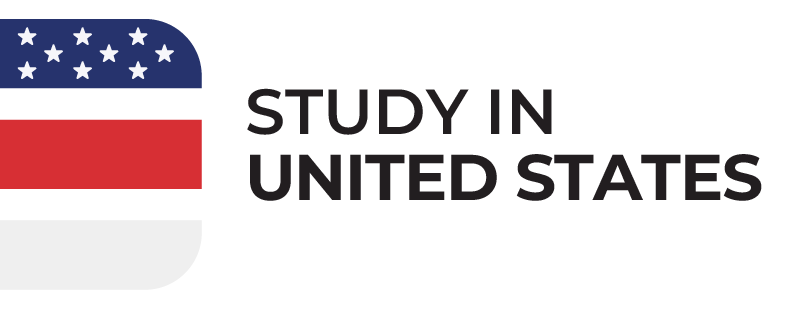The United States is considered the ideal study destination for international students who want to enroll in postgraduate studies. This is a result of the wide range of courses and programs that the universities in the US offer and the high-quality classes. The highest level of education a student can get in the US is a Ph.D.
P.h.D. graduates have an advantage in every job application in the United States, hence the US employers’ recognition towards independent researchers, and have enough experience in the profession they are applying for.
How to Get a PhD in United States?
Getting a P.h.D. in the United States means you will be one of the many candidates who are aware of the competitiveness of the program. The best thing you can do before enrolling is to apply to as many institutions as possible, assuming that you already know the research topic.
The first and most important factor that enables your application process is the earlier degrees obtained at a lower education level. The undergraduate degree is clearly a must in the requirements for postgraduate studies. You must hold a high GPA score throughout your Bachelor’s studies, considering its impact on your Doctoral Degree application.
Secondly, you must also enroll in a Master’s program prior to your Ph.D. studies. This is due to the level of experience that will help you in your research project and during the classes, you will be attending after getting accepted into a Ph.D. program.
How to Apply for a PhD in United States?
The sooner you start the application process for a Ph.D. the better. Considering most admissions are reviewed in December and January, the most suitable time for you to begin with your application is during September. Keeping in mind you will spend about 5-6 years working on your Ph.D., you must choose the specialization that best suits your interests.
Here’s how to apply to a PhD program in the United States:
Gathering the Documents
Depending on the institution you are applying at, the required materials for the application process may vary. Most of the universities have a website with all the details and the documents you need.
Some of the most common papers that are required include a CV, representing all your qualifications. The statement of purpose is an important part of your application, as it is a reflector of your personality, interests, and career plans. Additionally, you might need to include references (two or more), either by a former professor, work colleague, or someone very familiar with your qualifications. Transcripts, writing samples, GRE test scores, and language proficiency exams are compulsory requirements for all Ph.D. applicants.
How Long Does it Take to Get a PhD in the United States?
An average of 8.2 years is the standard length of time that most students take to finish their entire education experience, including the undergraduate degree and doctoral studies. There is a big percentage of students who take a break between their Master’s or undergraduate degrees, before applying or even thinking about pursuing a Doctoral Degree. Thus, the aforementioned number of years takes into consideration all the circumstances that may affect the length of a candidate’s graduation.
Some experts believe that the courses and the advisors of the dissertation candidates play a big role in the doctoral program duration. Throughout the entire Ph.D. degree, students are initially required to attend advanced classes and courses, followed by several compulsory exams, before beginning the work on their dissertation.
Another important factor that impacts the length of the Ph.D. program is the funding requested by students. At the time of the application for financial aid, funding may not be available and as such, it may delay the completion of the doctorate. Furthermore, during your dissertation, you might need additional monetary support, and getting a job is the solution. Consequently, the work hours may clash with classes, preventing you from graduating earlier.
How Much Does a PhD in United States Cost?
The tuition fees for postgraduate studies in the United States vary on different factors. The usual cost of PhDs usually ranges from $28,000 to approximately $40,000 yearly. However, the majority of doctorate students claim that it is possible to receive funding for most of their studies or in some cases, for the entire program.
Some universities provide qualified students with a position as assistants in the institution of their dissertations, as a form of supporting them financially. Other cases may include getting funding from other departments within the university or from the American Government itself. International students can use the opportunity to request funding from the government of their home countries or apply for scholarship programs such as The Fulbright Program.
The difference between international and domestic students is distinctly noticed in university costs. International students and out-of-state residents generally have to pay far more than students who reside in the same country as the university. The courses they enroll in do not make any difference when it comes to tuition. More on this topic, institutions that are related directly to education such as public libraries, tend to charge additional fees for international students.
On the other hand, studying in a private school in the US may cost you a lot more compared to public schools. The Ivy League universities in the United States, along with their great reputation for being ranked among the top schools in the world, have also very expensive tuition fees. Let’s take Princeton for example, where graduate students pay approximately $45,320 yearly with an additional $1,900 sum for healthcare insurance. Then we have the University of Dallas, Denver, or Cornell where the fees range between $15,000 to around $90,000 for one year.
Another important thing to factor in is the mode of learning; whether you are studying full-time or part-time may impact the length of your Ph.D. studies. The biggest difference between the two is reflected in the tuition fees. Full-time students have to pay a larger amount of money with the advantage of finishing earlier and pursue a career. In comparison, part-time postgraduate students pay the same amount of money, but for a longer period of time, considering they decide the number of classes to attend.
Can I Get a PhD Scholarship in United States?
It is a known fact that the US is one of the most expensive nations in the world for higher education universities. Therefore, they are constantly trying to provide funding for international students who are not eligible for the same financial aid as US Nationals.
We have come up with a list of institutions that offer Ph.D. Scholarships and their types:
- Foreign Fulbright Student Program
With the Fulbright Program, all international students who want to pursue a Master’s or Ph.D. degree are eligible for application. Postgraduate studies with no degree are also qualified to apply for this program. The benefits of the Fulbright are numerous, including tuition fees, textbooks, travel fees, accommodation expenses, and most importantly, healthcare insurance.
- Humphrey Fellowship Program
Through the Hubert H.Humphrey Fellowship Program, professionals in a specific field with experience in public service and leadership are welcomed to apply for a year on this program. Eligibility criteria include people from all over the world who want to advance further in their professional careers. This fellowship covers any expense within the year of completion.
There are many other scholarship programs available for Ph.D. candidates in the US and we have listed all of them below:
- American University Scholarships
- Amherst College Scholarships
- Berea College Scholarships
- Clark University Scholarships
- Colby-Sawyer College Scholarships
- Columbia College Scholarships
- Concordia College Scholarships
- Dartmouth College Scholarships
- East Tennessee State University
- East-West Center
- Emory College Scholarships
- Illinois Wesleyan University Scholarships
- Iowa State University International Merit Scholarships
- Michigan State University International Scholarships
- New York University Wagner Scholarships
- Oregon University Scholarships
- Wesleyan University Scholarships
- University of the West Scholarships


